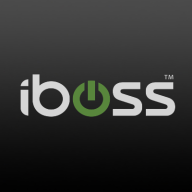


Cisco Umbrella and Advanced URL Filtering by Palo Alto compete in the network security category. Cisco Umbrella appears more favorable in terms of user satisfaction due to pricing and support, while Palo Alto may be preferred for its advanced feature set.
Features: Cisco Umbrella is known for DNS-layer security, seamless integration with other Cisco products, and effective threat detection and content filtering. Advanced URL Filtering by Palo Alto provides granular control over web traffic, advanced threat intelligence, and uses machine learning for dynamic content analysis.
Ease of Deployment and Customer Service: Cisco Umbrella offers a quick setup and efficient customer service for fast implementation. Advanced URL Filtering by Palo Alto may have a more complex setup process initially but provides detailed support ideal for environments needing custom security solutions.
Pricing and ROI: Cisco Umbrella has a more competitive setup cost, which is appealing to small to medium-sized enterprises while ensuring good ROI. Advanced URL Filtering by Palo Alto is potentially costlier initially but provides ROI through comprehensive threat management and analytics, beneficial for organizations requiring intricate security setups.
| Product | Market Share (%) |
|---|---|
| Cisco Umbrella | 16.9% |
| iboss | 2.2% |
| Advanced URL Filtering by Palo Alto | 1.1% |
| Other | 79.8% |


| Company Size | Count |
|---|---|
| Small Business | 6 |
| Midsize Enterprise | 6 |
| Large Enterprise | 5 |
| Company Size | Count |
|---|---|
| Small Business | 49 |
| Midsize Enterprise | 30 |
| Large Enterprise | 51 |
iboss offers a comprehensive security platform designed for diverse use cases such as web filtering, data loss protection, corporate proxy services, and URL filtering.
iboss integrates advanced features to address dynamic security needs, leveraging its strength in SASE, ZTNA, AI initiatives, and cloud integration, while ensuring seamless operations for remote work. It excels in historical forensics, malware protection, and flexible cloud deployments. Users benefit from comprehensive traffic scanning, robust malware detection, and PaaS capabilities that reduce hardware management. An intuitive admin console ensures efficient management with content filtering and low false positives. SSL decryption enhances security, while DLP protects data in AI conversations. Deployment is rapid and scalable, allowing effortless integration with emerging technologies.
What features does iboss offer?
What benefits and ROI should users consider?
iboss finds significant application in sectors such as education, where web filtering for K-12 is crucial, and in corporate environments requiring robust proxy services and URL filtering for network security. Its adaptability is essential in scenarios demanding flexible, decentralized security frameworks, particularly for remote work setups.
Advanced URL Filtering by Palo Alto is an innovative security solution designed to protect networks from web-based threats by leveraging machine learning to analyze all web traffic and block malicious URLs in real time.
Targeted towards a knowledgeable audience, Advanced URL Filtering offers comprehensive protection by integrating with existing security measures. It secures traffic across different gateways, ensuring safety against emerging threats. One valuable feature is its real-time phishing prevention using machine learning algorithms that continuously adapt to new attack patterns. Users also appreciate the seamless integration with other Palo Alto products. However, some suggest enhancements in reporting capabilities for optimized threat analysis and clearer insights. Despite its strengths, these improvements could further bolster its effectiveness.
What are the most important features of Advanced URL Filtering by Palo Alto?In industries like finance and healthcare where data protection is crucial, Advanced URL Filtering is implemented as part of a layered security strategy. It is valued for its ability to preemptively block threats without impacting user access to essential resources, allowing for a secure yet efficient operational environment.
Cisco Umbrella delivers rapid DNS security with over 30,000 customers, providing outstanding threat protection and handling more than 600 billion requests daily. It's recognized for high threat efficacy in the SSE domain and integrates elements like SWG, ZTNA, CASB, and more.
Cisco Umbrella is renowned for its effective DNS-layer security against ransomware and phishing. It offers flexible content filtering and integrates seamlessly with existing networks while providing single-pane-of-glass management for centralized monitoring. Its robust threat intelligence and customizable policies are central to its appeal. Users highlight room for improvement in areas like WHOIS data inclusion, malware enhancement, and reporting analytics. Integration with other threat feeds and better client support are requested for more comprehensive coverage.
What are the key features of Cisco Umbrella?
What should users expect in reviews about Cisco Umbrella?
Industries implement Cisco Umbrella primarily for DNS-level security, web filtering, and protecting remote employees. It strengthens cybersecurity frameworks by blocking malware and avoiding access to harmful sites. The tool is widely integrated with Active Directory and Cisco Meraki, providing consistent internet security for employees.
We monitor all Secure Web Gateways (SWG) reviews to prevent fraudulent reviews and keep review quality high. We do not post reviews by company employees or direct competitors. We validate each review for authenticity via cross-reference with LinkedIn, and personal follow-up with the reviewer when necessary.